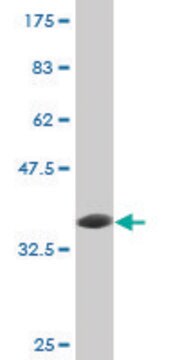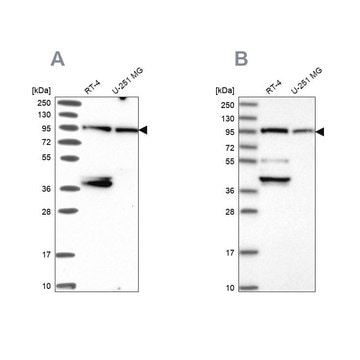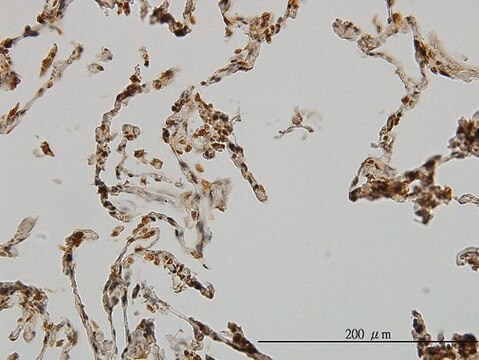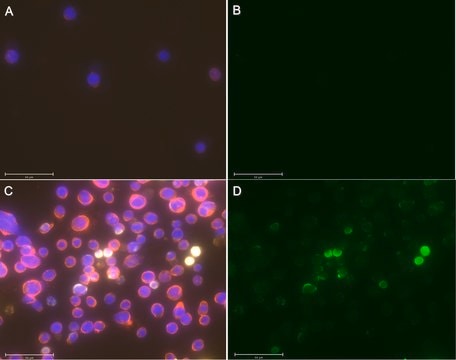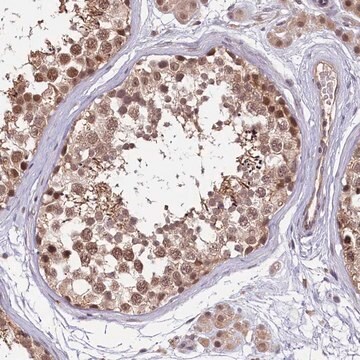MABS1683
Anti-UBE3A Antibody, clone 10H7.1
clone 10H7.1, from mouse
Synonym(s):
Ubiquitin-protein ligase E3A, EC: 2.3.2.26, E6AP ubiquitin-protein ligase, HECT-type ubiquitin transferase E3A, Human papillomavirus E6-associated protein, Oncogenic protein-associated protein E6-AP, Renal carcinoma antigen NY-REN-54
About This Item
Recommended Products
biological source
mouse
Quality Level
antibody form
purified immunoglobulin
antibody product type
primary antibodies
clone
10H7.1, monoclonal
species reactivity
human
packaging
antibody small pack of 25 μL
technique(s)
immunohistochemistry: suitable (paraffin)
western blot: suitable
isotype
IgG2aκ
NCBI accession no.
UniProt accession no.
shipped in
ambient
target post-translational modification
unmodified
Gene Information
human ... UBE3A(7337)
Related Categories
General description
Specificity
Immunogen
Application
Immunohistochemistry Analysis: A 1:1,000 dilution from a representative lot detected UBE3A in human cerebral cortex and human testis tissue.
Quality
Western Blotting Analysis: A 1:1,000 dilution of this antibody detected UBE3A in 10 µg of PC-12 cell lysate.
Target description
Physical form
Other Notes
Not finding the right product?
Try our Product Selector Tool.
Storage Class Code
12 - Non Combustible Liquids
WGK
WGK 1
Flash Point(F)
Not applicable
Flash Point(C)
Not applicable
Certificates of Analysis (COA)
Search for Certificates of Analysis (COA) by entering the products Lot/Batch Number. Lot and Batch Numbers can be found on a product’s label following the words ‘Lot’ or ‘Batch’.
Already Own This Product?
Find documentation for the products that you have recently purchased in the Document Library.
Our team of scientists has experience in all areas of research including Life Science, Material Science, Chemical Synthesis, Chromatography, Analytical and many others.
Contact Technical Service